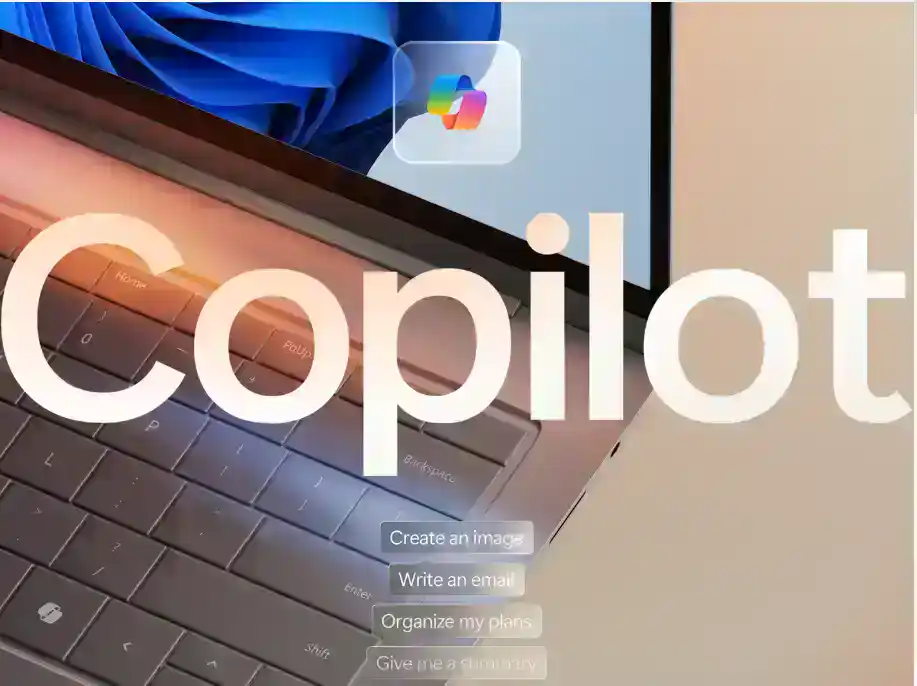Table of Contents
In a bold move that signals a transformative leap in personal computing, Microsoft has set its sights on making 2024 the “year of the AI PC.” At the forefront of this vision is the introduction of a groundbreaking addition to the standard PC keyboard: the Copilot key.
The Copilot Key: A Revolutionary Addition to PC Keyboards
Microsoft’s Executive Vice President and consumer Chief Marketing Officer, Yusuf Mehdi, heralded the Copilot key as a monumental change to the Windows PC keyboard after nearly three decades. Positioned to join the ranks of familiar keys like Windows, Control, Alt, and Insert, the Copilot key represents an ambitious step toward seamlessly integrating AI functionalities directly into the hardware interface.
This physical key, slated to replace the right Control key, aims to revolutionize user interactions with AI features, simplifying engagement with Copilot in day-to-day computing tasks. It marks a significant milestone in Microsoft’s commitment to democratizing access to AI-driven experiences and making it an integral part of the computing journey for users worldwide.

Unveiling the Future: Copilot Key’s Functionality and Rollout
Where Copilot functionality isn’t accessible, Microsoft ensures the key’s adaptability by seamlessly transitioning it to activate Windows Search. The inaugural release of keyboards featuring this innovative addition is scheduled for debut at CES in Las Vegas, with shipping anticipated to commence by late February. This strategic move underscores Microsoft’s commitment to ensuring users experience uninterrupted functionality, empowering them with the versatility to access Windows Search in instances where Copilot isn’t available.
Microsoft’s Copilot Key: Pioneering AI-Integrated Navigation for Future PCs
Microsoft’s recent announcement to introduce the Copilot key on keyboards echoes the momentous introduction of the Windows logo key back in 1994. This strategic decision highlights Microsoft’s unwavering commitment to advancing AI technology. In a deliberate move, the company is forging collaborations with industry leaders such as AMD and Intel to harness local silicon’s power for improved AI inferencing.
This partnership aims to unlock unprecedented AI-driven experiences on Windows PCs, heralding a revolutionary phase in the evolution of computing. The Copilot key signifies a significant leap, promising enhanced navigation capabilities and seamless integration of AI functionalities into everyday computing tasks. Microsoft’s dedication to innovation, coupled with these strategic collaborations, sets the stage for a future where AI becomes an integral part of the PC experience, transforming how users interact and engage with their devices.
Embracing Change: Evolution of Computing Experiences
Microsoft reassures users that existing keyboards will continue to function seamlessly. Additionally, for users with compatible keyboards, the option to remap the right Control key to emulate the Copilot key acknowledges preferences for customization. Ultimately, users retain the liberty to embrace this innovation or continue with their familiar keyboard interactions, highlighting Microsoft’s commitment to accommodating diverse user preferences.
The introduction of the Copilot key goes beyond mere hardware alteration; it symbolizes a strategic move towards integrating AI into the core of everyday computing experiences. By seamlessly incorporating AI functionalities into the keyboard interface, Microsoft aims to redefine user interactions, enhance productivity, and pave the way for a more intuitive and AI-powered computing era.
Conclusion: Microsoft’s Bold Step Forward
The Copilot key stands as a testament to Microsoft’s dedication to pushing boundaries and shaping the future of computing. It represents a pivotal milestone in their journey to make AI more accessible, user-friendly, and seamlessly integrated into everyday computing experiences.
Whether users embrace this change or choose to overlook it, the Copilot key marks a significant step forward in the ongoing evolution of AI-enabled personal computing.